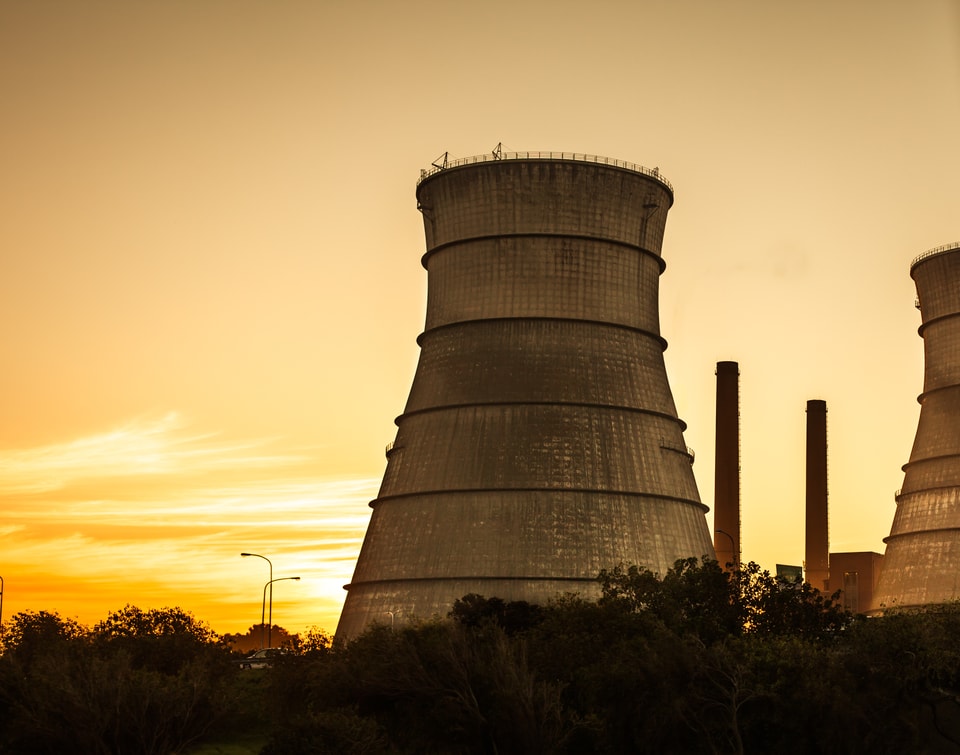Memo Published April 19, 2018 · 5 minute read
Africa is Looking to Nuclear Energy, and the U.S. is Nowhere in Sight
Suzanne Hobbs Baker

For those who follow nuclear export issues, all eyes are on the big Saudi deal. But that’s far from the only game in town. An entire continent is anticipating massive economic growth, and looking for innovative energy systems that can keep up. With roughly a dozen African nations considering nuclear energy in their development plans, there’s an unusually large opportunity for the U.S. to advance its economic interests and strategic global partnerships in the region. If we want to compete for these deals, however, the U.S. needs to innovate and step-up its sales pitch.
A new report released by the Center for Global Development this week shows that several nations in Sub-Saharan Africa are already in discussions to stand up commercial nuclear power sectors. Unfortunately, the U.S. hasn’t been at the table for any of them. Instead, we’ve watched as Russia and China crisscross the continent, forming partnerships with country after country.
The U.S. should be competing more aggressively for this new business for a number of reasons. These deals could create tens of billions of dollars in export opportunities for U.S. developers and manufacturers, followed by decades of lucrative service contracts. When we export our nuclear technologies, we’re also exporting our safety practices and setting the bar for global security. Lastly, supplying a country with nuclear energy technology creates a century-long strategic relationship. With this much at stake, it’s no wonder Russia and China are making nuclear exports to Africa such a high priority.
These deals could create tens of billions of dollars in export opportunities for U.S. developers and manufacturers, followed by decades of lucrative service contracts.
Why isn’t the U.S. keeping up? Our companies have large-scale reactor designs we could export. But other countries sell those too. And with government-backed vendors and financing packages, many of them offer deals that U.S. companies just can’t compete with. That doesn’t have to mean forfeiting this growing global market, though. Despite our challenges, the U.S. still has a chance to get back in the game if it focuses on a few commonsense business strategies.
First, we need to focus on making the products that will best fit the needs of these customers.
Power grids in most African nations aren’t big enough to support large light-water reactors, but could benefit from smaller designs that are cheaper and more secure. As the Center for Global Development report notes, advanced reactors might be the best solution for several Sub-Saharan nations. They deliver the reliable, carbon-free power of traditional models, but at smaller scale and lower cost. They can be built quickly, and additional units can be installed over time to accommodate growth. Safety and security considerations being baked-into new reactor designs could also make it easier for these countries to meet rigorous international standards. One of the best ways to catch up to Russia and China is simply to have more attractive products. Luckily, dozens of U.S. companies are already working on those.
One of the best ways to catch up to Russia and China is simply to have more attractive products.
Second, we need to have these reactors ready to go when customers need them.
The first U.S. advanced reactors are expected to hit the market in roughly ten years. That happens to align very well with the timelines that several nations like South Africa, Nigeria, Ghana, and Kenya have laid out for constructing their first reactors. This is fortuitous timing, but it leaves little room for error. Washington must continue working with the private sector to accelerate development, work-through regulatory barriers, and make sure U.S. reactors are available on or ahead of schedule. You can bet that Moscow and Beijing will be doing the same.
Finally, showing up matters.
Last month, we heard from Pricilla Atansah from the Ghanaian Ministry of Finance, and her message was clear: the United States must engage with African nations broadly in order to be good partners in the development of nuclear energy projects going forward. That means fostering strong diplomatic relationships with these countries, investing in their long-term development goals, and negotiating in good faith to find agreements that maximize the benefits for both parties.
America can provide African nations with the nuclear energy products they need and be the type of partner they want. If we win their business, the benefits to our economy, security, and international relations will be enormous. But to secure these victories, we need to make nuclear exports a higher priority and update our strategy—and we need to start doing it now.
